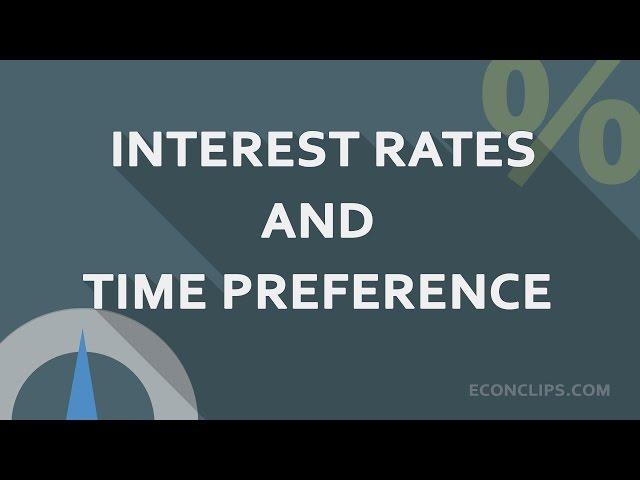Комментарии:

inflation is theft. a planned economy cannot work. interest rates should be based on the demand, not some dictated by some omniscient wise overlords.
Ответить
These videos are one of the reasons I started becoming Libertarian
Ответить
Japan is currently a good example of low time preference, doesn't matter how much debt they have they can keep going do to massive savings
Ответить
Governments would try to fix this cycle through monetary and fiscal policy
Ответить
a six-minute video debunks the whole Marxian dogma and Keynesian cult.
Ответить
Y'all blow me away with how easy to understand this stuff is!
Ответить
Lower time preference is normal in Keynes' world. It's Sex Pistols before Sex Pistols.
Ответить
In other words: a low time preffrence is based and you should have that.
Ответить
There is conflict of interest between who run the banks and desirous real growth of economy. Banks love lend to unproductive to individuals for their profits thus 2008 financial crisis.
Ответить
You know that banks are chartered by the government in order that they legally create money? They are public-private entities. This implies that they do not lend money out when people take loans, but that they create loans out of thin air and find the reserves to cover the loans later by trading with other banks later. Fractional reserve banking is not real.
Ответить
this stuff is kooky
Ответить
Preference is the action you choose to take. Time preference is when you choose to take it. If you choose to do it now, then that's high time preference. If you choose not to do it now, that's lower time preference.
Nobody simply has "high time preference" or "low time preference." Your time preference is in relation to a given action, and there are always alternatives you are choosing not to do right now.

Oh boy....
Ответить
Change the title to "Socialism debunked in 6 minutes"
Ответить
I think it's risk in stead of time preference that affects supply/demand which affects interest rate.
Ответить
If you understand simple zero-coupon bond mechanics in a free market, you'll understand that it's all just supply and demand. Interest rates then are just an indication of risk. The lower the risk in the market, the more eager lenders give out money to borrowers. This bids up prices for their promise of repayment, i.e. lowering the interest rate. The closer the bid price to face value of the bond, the lower the interest rate.
So forget about interest rates. They're just a result of price.

Your explaination is phenomenal
Ответить
This same logic applies to health and education.. Central planning is economic poison. it’s amazing really what we can accomplish as a body of individual decision makers.. yet we put the decision making power in the hands of bureaucrats and regulators. Insane.
Ответить
Thank you. Really well explained!!
Ответить
Good explanation. I learned a lot.
Ответить
What makes the society's time preference change as a whole?
Ответить
No one would prefer a full reserve bank in a inflating economy
Ответить
Nothing is further from the truth than this fairy tale. In modern western societies, money is 'printed' -- that is it. The printing press determines the volume of available money for credits. Money that people want to save in terms of retirement funds and insurance capital is sucked up mostly in the stock market. The desire to consume money is directly related to how much people earn, which is directly related to the economic health. Unfortunately, history has shown that lack of economic health does not lead to 'cheaper money' for investments. Beautiful slides promoting nonsense, I would say.
Ответить
How can it be the no central banks means no boom bust cycles if the United States had no central bank from the 1830s until the 1910s and that time period was full of boom bust cycles.
Ответить
Props
Ответить


























